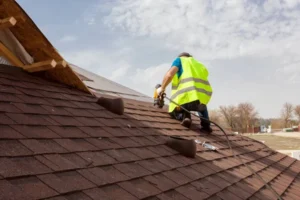Power outages are just one of life’s annoyances. Some make do with flashlights and emergency radios. They may even head to the office coffee pot or the local Starbucks to get a charge on their devices.
For people with small children, a power outage can be a parent’s nightmare. Lost power means no lights, appliances, TV, and air conditioning on a hot summer day. What’s a parent to do to keep kids entertained, distracted, and safe?
Knowing what to do ahead of time will help you avoid panic. Read on to learn what to do if you lose power in your home.
Have an Emergency Power Plan
When you lose power in your home, it’s important to have an emergency power plan. Make sure that you know the contact information for the local utility provider and the municipality’s emergency services. This will allow you to report and track power outages.
Have necessary emergency supplies, like an emergency radio and flashlight, on hand. Power outages can cause appliances to malfunction, so have backup batteries and an emergency generator available.
Keep an updated list of family contact information available to ensure you can check in on everyone in an emergency. Following your emergency power plan can help you stay safe and informed.
Surge Protectors: A Necessary Investment
If you do not already have surge protectors, this is the perfect time to invest in them. Surge protectors provide additional protection to connected devices, such as computers and televisions, from power shortages or sudden spikes in voltage. They also provide circuit protection to avoid fires or short circuits.
Turning off any devices that may be affected by the power loss is an important step, as this can help avoid the potential damage that could occur due to a power surge.
Understanding When to Contact Your Local Utility Company
A power outage should be reported to your utility company if it lasts 30 minutes or more. During the power outage, make sure to unplug all electrical devices and appliances to prevent any power spikes when the power is restored.
If there is a storm or you suspect a fallen electric line, do not attempt to address the issue and contact your power company immediately. If devices malfunction after the power is restored, contact the utility company again as the issue may indicate electrical issues or a faulty power grid.
Generators: An Alternative Power Source
Installing a generator is a good alternative power source, as they allow you to supply power to essential items in the home, like lights and heating systems. Ensure that any generator you purchase is essential for the job and is installed properly, observing safety regulations and other related laws.
If you opt to use a generator, make sure to keep it in a well-ventilated space and never use it indoors. Look into any warranties that come with your generator to ensure it functions properly.
Know What to Do When You Lose Power at Home
Knowing what to do when you lose power at home can make a big difference. Create a plan that outlines what you need to do to stay safe and comfortable during an outage. Ensure you have the necessary supplies and an emergency kit on hand.
If a power outage occurs, follow your plan and stay informed. Have your utility contact information in case you need to contact them.
Check out the rest of our blog page now for loads of more informative content!









